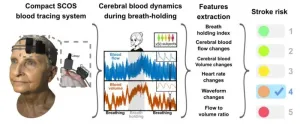(Press-News.org) A human rights-based approach to coral reef protection could ensure governments are held to account for safeguarding marine ecosystems and empower local and Indigenous communities to demand sustainable solutions and climate justice, a new study suggests.
An estimated one billion people rely on healthy coral reefs globally for food security, coastal protection and income from tourism and other services. If reefs and their ecosystems are lost, the impact on human health and economic wellbeing would be catastrophic.
Lead author, Dr Emma Camp from the University of Technology Sydney (UTS), said the window of opportunity to conserve coral reefs is rapidly closing and despite numerous protective measures, coral reefs around the world continue to degrade.
“2024 marks the fourth global coral bleaching event impacting more than 50% of the world’s coral reefs, as well as other stressors such as pollution. This is an urgent reminder that the loss of coral ecosystems negatively impacts both humans and nonhumans,” said Dr Camp.
“Implementing coral reef conservation through a human rights-based approach will provide a practical path towards a much-needed transformation of local, national, and international governance, while also highlighting the human side of coral loss,” she said.
The article, Coral reef protection is fundamental to human rights, published in the journal Global Change Biology, is a cross-disciplinary collaboration with School of Law, University at Buffalo, The State University of New York, University of Konstanz, and UTS experts in law and science.
In 2022 the human right to a clean, healthy and sustainable environment was affirmed by the United Nations General Assembly. Human rights globally are under threat from intensifying climate change, pollution and biodiversity loss.
Professor Christian Voolstra, a co-author and the elected President of the International Coral Reef Society said: “The recent Intergovernmental Panel on Climate Change report stated with high confidence that even at 1.5 °C warming, a mark that we might have already missed, the majority of warm-water coral-dominated systems will be quasi non-existent.
“We consequently need to think differently about reef conservation and how we fast-track to try and protect these critical ecosystems for current and future generations."
“In other fields, applying a human-rights based approach to environmental protection has advanced both social and environmental conservation,” said co-author Dr Genevieve Wilkinson from UTS Law, a founder of the Australian and Aotearoa New Zealand Economic, Social and Cultural Rights Network.
“A rights-based approach embeds non-discrimination, empowerment and participation so that litigation is not the only available avenue for participation and empowerment of vulnerable rightsholders. States must be accountable to obligations to protect human rights and find just solutions.
“A human rights-based approach to coral reef protection is an important opportunity to expedite reef protection while simultaneously advancing climate justice for humans and non-humans,” said Dr Wilkinson.
The study highlights the 2022 decision in Billy v. Australia, which was the first successful climate litigation framed through the language of rights before this body.
“The case was submitted by a group of eight Torres Strait Islanders, and six of their children. It demonstrates how states’ failure to effectively address climate change can threaten the human rights of low-lying reef nation inhabitants who rely on healthy coral reefs to ensure their way of life.
“Coral bleaching and its damaging impact on crayfish habitats were specifically identified as a harmful climate change impact by the Human Rights Committee,” said Dr Wilkinson.
“The Committee determined that failure to implement adequate climate change adaptation measures by the Australian Government violated the Torres Strait Islander inhabitants’ rights to culture and to private and family life, contrary to the International Covenant on Civil and Political Rights,” she said.
The triple planetary crisis of climate change, biodiversity loss, and pollution has been described by the United Nations’ High Commissioner for Human Rights as the greatest future challenge facing human rights globally.
END
Coral reef destruction a threat to human rights
A human rights-based approach to coral reef protection could ensure governments are held to account for safeguarding marine ecosystems.
2024-10-01
ELSE PRESS RELEASES FROM THIS DATE:
Tongan volcanic eruption triggered by explosion as big as ‘five underground nuclear bombs’
2024-10-01
The Hunga Tonga underwater volcano was one of the largest volcanic eruptions in history, and now, two years later, new research from The Australian National University (ANU) has revealed its main trigger.
Until now, the cause of the cataclysmic event has remained largely a mystery to the scientific community, yet a student-led team of ANU seismologists has been able to shed new light on the natural explosion that initiated the event.
The student researchers analysed the climactic event’s noisy but valuable seismic ...
Syrian hamsters reveal genetic secret to hibernation
2024-10-01
A gene that limits cellular damage could be the key to surviving prolonged cold exposure.
Researchers have identified a gene that enables mammalian cells to survive for long periods at extremely low temperature, which animals experience during hibernation.
Body temperatures below 10 degrees Celsius (°C) swiftly prove fatal for humans and many other mammals, because prolonged cold stress causes cells to accumulate damaging free radicals—in particular lipid peroxide radicals—resulting in cell death and organ failure. But a few mammalian species can survive cold stress by hibernating. Hibernation in many small mammals involves ...
Tracking microplastics: FAMU-FSU College of Engineering researcher helps discover how microplastics move for better storm water management
2024-10-01
Microplastic pollution is a significant environmental problem that harms animals and people and affects ecosystems worldwide. These tiny pieces of plastic, smaller than five millimeters, are pushed by wind and water to move around the globe.
Nasrin Alamdari, an assistant professor in the FAMU-FSU College of Engineering’s Department of Civil and Environmental Engineering, is on a mission to learn more about microplastics and how they move.
In research published in Environmental Pollution, she helped examine how shape, size and density affect the speed at which ...
The Lancet Psychiatry: Conversion practice linked to greater risk of mental health symptoms, surveys of LGBTQ+ people in the USA suggest
2024-09-30
Analysis of questionnaires completed by 4,426 LGBTQ+ people in the USA suggests undergoing conversion practice targeting gender identity or sexual orientation is linked with symptoms of depression, PTSD and suicidal thoughts or attempts.
Cisgender and transgender participants also had more severe symptoms of depression and PTSD if they had undergone conversion practice.
Cisgender participants subjected to both types of conversion practice had a greater risk of suicidal thoughts and attempts than transgender participants – but mental health symptoms were more severe for transgender people overall, ...
Most accurate ultrasound test could detect 96% of women with ovarian cancer
2024-09-30
An ultrasound test that detected 96% of ovarian cancers in postmenopausal women should replace current standard of care test in the UK according to a new study.
In a paper published in Lancet Oncology today (Monday 30 September), research funded by the National Institute for Health and Care Research (NIHR) and led by Professor Sudha Sundar from the University of Birmingham compared all currently available tests to diagnose ovarian cancer in postmenopausal women head-to-head in a high-quality diagnostic test accuracy study.
Of the six diagnostic tests investigated, ...
Sylvester study: MRI provides early warning system for glioblastoma growth
2024-09-30
MIAMI, FLORIDA (EMBARGOED UNTIL SEPT. 30, 2024, AT 5:40 P.M. EDT) – A new study shows the potential power of imaging paired with radiation to shape treatment for glioblastoma patients in real time.
The study, led by researchers at Sylvester Comprehensive Cancer Center, part of the University of Miami Miller School of Medicine, is the first to quantify tumor changes in glioblastoma patients receiving MRI-guided radiation therapy. This novel technique, also known as MRI-linear accelerator or MRI-linac, pairs ...
Making soybeans smarter
2024-09-30
Ron Mittler is on a quest to create a smarter soybean. For years, mid-Missouri has withstood unpredictable weather patterns, including drought, heat waves and flooding — conditions that are known to hamper agricultural yields and make it difficult for farmers to produce. While we can’t control the weather, Mittler and his team are working to harness soybean crops’ natural ability to adapt to unfavorable weather conditions while also increasing their yields.
Working with $2.4 million from ...
New wearable laser device monitors brain blood flow to gauge stroke risk
2024-09-30
WASHINGTON — Researchers have developed a laser-based device that can be placed on the head to non-invasively monitor changes in brain blood flow and volume. The new device could one day help save lives by offering a direct and simple way to assess stroke risk based on physiological markers rather than indirect markers like lifestyle factors.
Strokes occur when blood flow to the brain is blocked or reduced, causing debilitating brain cell damage. With about 15 million people worldwide affected by strokes each year, it is the second leading cause of death and ...
BU professor receives $29M NIH grant to study dementia risk factors, prevention, and treatment
2024-09-30
FOR IMMEDIATE RELEASE
Monday, September 30, 2024
Contact:
Jillian McKoy, jpmckoy@bu.edu
Michael Saunders, msaunder@bu.edu
##
BU Professor Receives $29M NIH Grant to Study Dementia Risk Factors, Prevention, and Treatment
The Triangulation of Innovative Methods to End Alzheimer’s Disease project will use large, diverse datasets to examine whether interventions targeting alcohol use, depression, vision or hearing impairments, or social isolation can protect people from Alzheimer’s disease and related dementias. This project is a collaboration among Dr. Maria Glymour at Boston University School of Public Health, Dr. Jacqueline ...
Ninth Circuit reverses lower court, reinforces FDA's authority to regulate unproven stem cell products
2024-09-30
In an important step to protect the public from unproven stem cell products, the U.S. Court of Appeals for the Ninth Circuit ruled in favor of the U.S. Food and Drug Administration in U.S. v. California Stem Cell Treatment Center, Inc., reversing the district court. The reversal fortifies FDA’s tiered, risk-based framework for the regulation of cell therapies and is consistent with a similar ruling in the Eleventh Circuit in 2021.
The appellees urged the Ninth Circuit to uphold the lower court’s ...
LAST 30 PRESS RELEASES:
Kidney cancer study finds belzutifan plus pembrolizumab post-surgery helps patients at high risk for relapse stay cancer-free longer
Alkali cation effects in electrochemical carbon dioxide reduction
Test platforms for charging wireless cars now fit on a bench
$3 million NIH grant funds national study of Medicare Advantage’s benefit expansion into social supports
Amplified Sciences achieves CAP accreditation for cutting-edge diagnostic lab
Fred Hutch announces 12 recipients of the annual Harold M. Weintraub Graduate Student Award
Native forest litter helps rebuild soil life in post-mining landscapes
Mountain soils in arid regions may emit more greenhouse gas as climate shifts, new study finds
Pairing biochar with other soil amendments could unlock stronger gains in soil health
Why do we get a skip in our step when we’re happy? Thank dopamine
UC Irvine scientists uncover cellular mechanism behind muscle repair
Platform to map living brain noninvasively takes next big step
Stress-testing the Cascadia Subduction Zone reveals variability that could impact how earthquakes spread
We may be underestimating the true carbon cost of northern wildfires
Blood test predicts which bladder cancer patients may safely skip surgery
Kennesaw State's Vijay Anand honored as National Academy of Inventors Senior Member
Recovery from whaling reveals the role of age in Humpback reproduction
Can the canny tick help prevent disease like MS and cancer?
Newcomer children show lower rates of emergency department use for non‑urgent conditions, study finds
Cognitive and neuropsychiatric function in former American football players
From trash to climate tech: rubber gloves find new life as carbon capturers materials
A step towards needed treatments for hantaviruses in new molecular map
Boys are more motivated, while girls are more compassionate?
Study identifies opposing roles for IL6 and IL6R in long-term mortality
AI accurately spots medical disorder from privacy-conscious hand images
Transient Pauli blocking for broadband ultrafast optical switching
Political polarization can spur CO2 emissions, stymie climate action
Researchers develop new strategy for improving inverted perovskite solar cells
Yes! The role of YAP and CTGF as potential therapeutic targets for preventing severe liver disease
Pancreatic cancer may begin hiding from the immune system earlier than we thought
[Press-News.org] Coral reef destruction a threat to human rightsA human rights-based approach to coral reef protection could ensure governments are held to account for safeguarding marine ecosystems.







